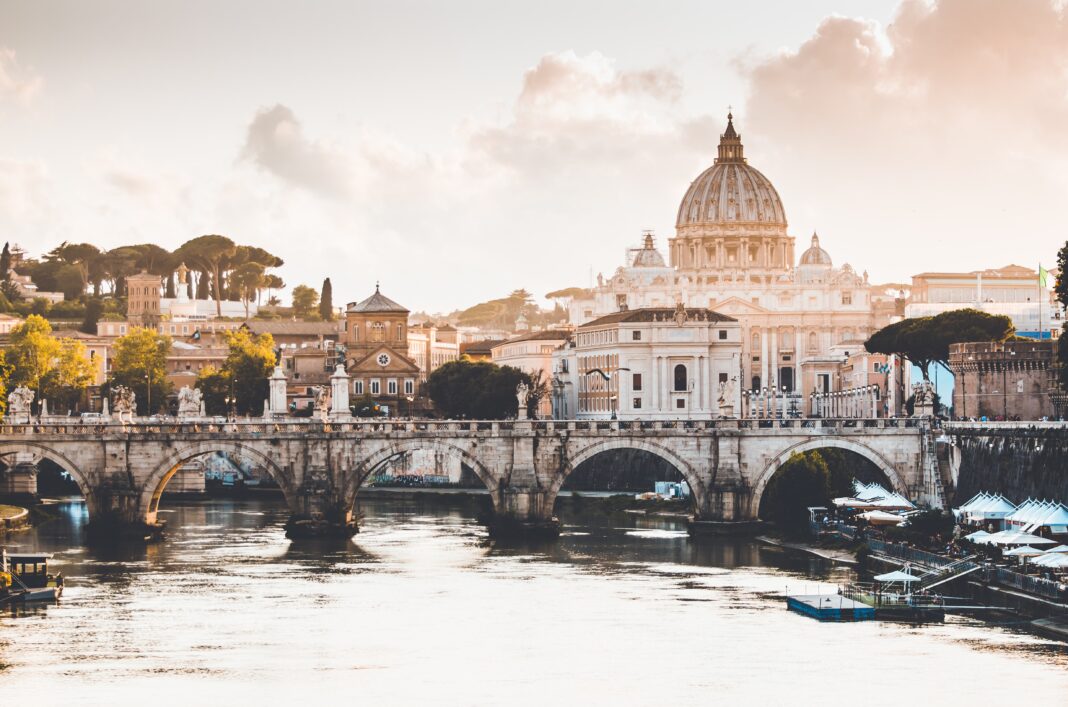by Gianni Beretta
While the tenth anniversary of Pope Francis’ pontificate is being celebrated in Rome, in Nicaragua the events of recent days have precipitated relations between the country on the Central American isthmus and the Vatican, which had already deteriorated considerably since the popular uprising of April 2018: suffocated in the blood of hundreds of young people and when the local Church tried in vain to mediate after trying to shelter the rebels in its temples. The government of President Daniel Ortega announced the ‘suspension’ of relations and ‘requested’ the Holy See to close their respective diplomatic offices; curiously specifying that this would not be an actual break. When it was again Ortega who exactly a year ago expelled the then apostolic nuncio, Polish Waldemar Stanislaw Sommertag, for having gone to Rome (he dean of the diplomatic corps) instead of attending his fourth consecutive presidential investiture.
The Nicaraguan autarch must not have liked ‘his holiness”s comments last week when he was asked by an Argentinean journalist from the Infobae agency what he thought of Ortega who had said that ‘bishops, priests and popes are all a mafia’. I can only think of an imbalance in the person in charge; it is as if it were a communist or Hitlerian dictatorship…” And to think that Bergoglio had so far been reproached for the excessive prudence observed in his comments on the Orteguist regime. At stake now more than ever is the cumbersome fate of the bishop of Matagalpa, Rolando Alvarez, sentenced to 26 years in prison (for terrorism and betrayal of his country) the very day after he refused to board the plane that last February deported to the USA (freeing them) 222 Nicaraguan prisoners of the most varied political tendencies, including historic leaders of Sandinismo. Incredibly deprived at the same time of their native nationality, along with 94 other opponents who were already in exile. On that occasion in the Sunday Angelus Pope Francis called himself a ‘friend’ of Mgr Alvarez. Who in reality the Vatican Secretariat of State would have preferred to leave his country to stem bilateral tensions.
The Church is but the last link in the chain of annihilation of any expression of Nicaraguan civil society that has seen in the last five years the banning of over three thousand associations, NGOs and the most disparate and even irrelevant entities that were not in the clan of the family of President Ortega and his deputy (as well as consort) Rosario Murillo. Often with the application of the now notorious ‘foreign agent’ pretext. But before that, the political opposition had been zeroed out with the detention of the seven pre-candidates on the eve of the November 2021 electoral farce. Not to mention the total blackout of freedom of information.
Ortega, in his messianic delirium of power, invokes ‘nuestro dios todo poderoso’ (our almighty God)in each and every speech he makes. But it is his handyman wife Rosario who is specifically dedicated to the repression of the ecclesiastical environment by imprisoning priests and religious, going so far as to expel the harmless nuns of Mother Teresa of Calcutta last year. And still threatening Catholics with her provocative invitations to foreign fundamentalist preachers. She who considers herself the fundamentalist guardian par excellence of the Christian faith in Nicaragua, so much so that some call her ‘the papess’. While most call her bruja (sorceress) for her exorcisms and the dozens of rings she wears on her fingers, each one against a different evil eye. She was the instigator of the attack on the crucifix chapel in the Capitoline cathedral in August 2020. Just as she was the organiser, the previous March, of the desecrating boycott by her unruly followers at the funeral of the poet-father Ernesto Cardenal, her detested literary competitor who paradoxically held the culture ministry during the Sandinista Revolution; together with no less than three other priest-ministers under the slogan ‘entre Cristianismo y Revolución no hay contradicción’ (there is no contradiction between Christianity and revolution).
Murillo was the architect of Ortega’s rapprochement with the archbishop of Managua Obando y Bravo, his main internal enemy during the revolution (whom Pope Woytjla made cardinal after his disputed visit in March ’83). From him they got remarried in the cathedral in exchange for electoral support for a return to government in 2007. It was she who immediately afterwards promoted the anti-abortion law in Nicaragua. And today she rails against a hierarchy that, except for Bishop Alvarez and a few other minor figures, is frankly not that insidious. The latest measure ordered by Rosario Murillo, in the name of the much waved Government of Reconciliation and National Unity of Our Blessed and Ever Free Nicaragua, is the prohibition of all processions in view of the upcoming ‘holy week’. Whereas about ten days ago it had the authority closure of no less than the Caritas offices.
Cover image: Vatican City by Christopher Czermak, Unsplash
























